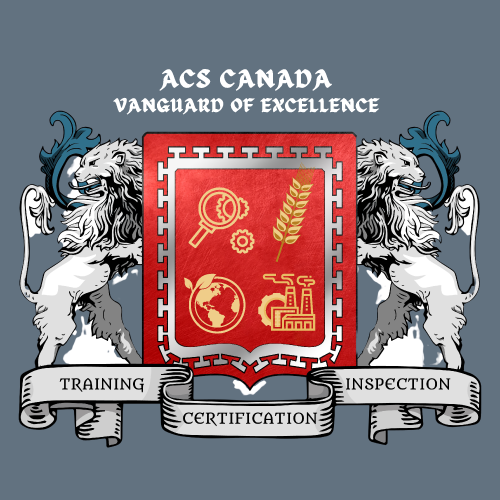Top 5 HACCP and Food Safety Trends Shaping 2025
In 2025, global food safety is being reshaped by new technologies, stricter regulations, and a stronger culture of prevention. As companies across Canada and around the world aim to enhance their HACCP Certification and compliance performance, several trends are emerging that redefine how food businesses monitor, verify, and continuously improve safety systems.
Five key trends in HACCP implementation this year:
1. Digital Monitoring & Analytics
Food facilities are increasingly moving away from manual data collection and paper records toward digital, real-time monitoring systems. Advanced sensors, Internet of Things (IoT) devices, and smart dashboards now track Critical Control Points (CCPs) continuously—covering temperature, humidity, pressure, pH, and sanitation performance.
This shift to digital HACCP monitoring improves data integrity, enables instant alerts, and allows managers to act on issues before they become risks. Artificial Intelligence (AI) and predictive analytics tools further enhance these systems by identifying trends and preventing deviations. For organizations pursuing or maintaining HACCP certification, digitalization ensures audit readiness and strengthens traceability.
2. Traceability Focus
Traceability has evolved from a regulatory expectation to a core business advantage. With increasing consumer demand for transparency, and regulators in both Canada and the European Union tightening documentation requirements, companies are investing in end-to-end digital traceability systems.
Modern traceability tools record every stage of the food supply chain—from raw material sourcing and transportation to production and distribution. These systems support faster investigations and recalls while reinforcing trust between suppliers, retailers, and consumers. Integration of blockchain and cloud-based databases is making traceability more reliable and accessible for SMEs aiming for HACCP or ISO 22000 certification.
3. Allergen Control
Food allergens remain one of the leading causes of recalls across global markets. In 2025, authorities are emphasizing cross-contact prevention, stronger label verification, and improved allergen risk communication.
For food producers, effective allergen control begins with detailed hazard analysis and properly validated cleaning procedures. Automated verification technologies such as protein detection swabs and AI-assisted label review systems are becoming standard tools. Implementing a HACCP plan that includes thorough allergen management demonstrates compliance with both Canadian CFIA requirements and international expectations—protecting consumers and brand reputation alike.
4. Supplier Verification
Supply-chain transparency and accountability are now integral to HACCP success. In 2025, more companies are adopting risk-based supplier verification programs that align directly with Food Safety Management Systems (FSMS) principles.
This involves evaluating supplier certifications, audit results, material specifications, and historical performance. Digital supplier portals and shared cloud platforms allow real-time monitoring of documentation and corrective actions. Through robust supplier management, businesses reduce vulnerabilities and ensure that every ingredient or raw material meets safety expectations—a fundamental element of any effective HACCP program.
5. Culture of Food Safety
Perhaps the most transformative trend is the global recognition that technology alone cannot guarantee food safety—people do. Organizations are shifting focus toward building a strong culture of food safety, where employees at all levels understand their role in protecting consumers.
Auditors and certification bodies, including ACS Canada, are increasingly assessing training effectiveness, leadership involvement, and behavioral indicators during HACCP and ISO 22000 audits. Companies with mature safety cultures experience fewer incidents, stronger compliance, and higher overall product quality.
Final Thoughts
Food safety in 2025 is becoming more data-driven, transparent, and human-centered. Embracing digital innovation, full traceability, robust allergen prevention, stronger supplier accountability, and a safety-first culture helps organizations not only meet HACCP and ISO 22000 requirements, but also lead in global market competitiveness.
ACS Canada Certification supports organizations across Canada and internationally in achieving accredited HACCP and ISO 22000 certification—helping you stay ahead of regulatory, technological, and cultural shifts in food safety.

